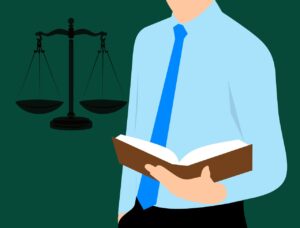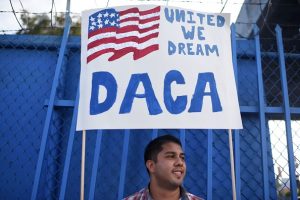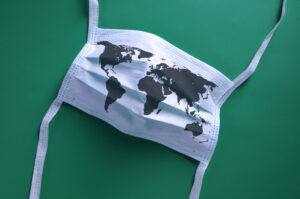More and more attorneys are capitalizing on technology to better run their practices or start a practice. Today, more attorneys than ever are considering practicing remotely as the pandemic has forced unprecedented work-from-home scenarios. For many attorneys trying to build a practice, the current lack of face-to-face interaction is a major roadblock.
At the same time, people and businesses across the country are in need of legal representation but don’t always know how to find it. Attorney search sites are hard to navigate, don’t give enough information and still leave you with the burden of scheduling and meeting. They promote the attorneys who pay fees for a listing, not necessarily the best attorneys. For much of the public, millions of legal matters go unaddressed every year, which adds up to an untapped legal market of billions of dollars, despite attorneys who want to work and clients who want representation.
A new player in the legal tech market is aiming to solve everyday challenges lawyers face. The folks at XIRA have created an online platform designed to bring clients to you, manage your schedule and help you book your free time. They also expand your market reach, reduce your overhead and help you get paid faster.
How XIRA Works for Clients
XIRA is easy to use and free of any extraneous marketing, advertising, or other clutter. Users start by simply searching for attorneys who practice in particular areas of law in their jurisdiction.
The search results appear as a list of potential attorneys, each with a name, photo, rating, charge for initial consultations (some of which are free), standard hourly rates, and earliest availability to meet. On the left of the results screen, there are filters that users can toggle to obtain a perfectly tailored combination of price, fee structure, availability, expertise, and more to meet their specific criteria.
 Click any individual attorney in the search results, and users can see an attorney’s bio, areas of law they practice, education, license information (which links directly to the bar association if the user wants to confirm they’re in good standing), languages, and social media links. Users also see the attorney’s calendar for the next 30 days with available meeting times.
Click any individual attorney in the search results, and users can see an attorney’s bio, areas of law they practice, education, license information (which links directly to the bar association if the user wants to confirm they’re in good standing), languages, and social media links. Users also see the attorney’s calendar for the next 30 days with available meeting times.
If users like what they see, they can instantly book either the first available time or another free time that’s convenient for them. Making an appointment with a new attorney is that simple!
There’s never any fee for clients to use XIRA – all they pay for is the legal services actually obtained. To register, the user simply verifies their email address and adds credit card information for future use. If the attorney that is selected has no initial consultation fee, the user doesn’t get charged!
XIRA sends a confirmation email with information on what to expect, what documents the user should have ready, and a link to the meeting. Scheduling the first consultation is easy and intuitive, and there’s no additional software needed.
Equally Easy for Attorneys to Join
Just enter your email, bar information, add your photo, select your practice areas, hourly rates or fee structures associated with each of your practice areas, initial consult charges (if any), and connect your calendar. XIRA can be synced with Google, Microsoft and iCal to avoid scheduling conflicts.
Once XIRA verifies that you’re licensed and in good standing, you’re open for business
and potential clients can find and book appointments on your calendar. The entire process to join XIRA takes less than 10 minutes and couldn’t be easier.
There are tools to help you promote and increase your visibility and to let clients get to know you better. Build your bio, add a video bio, and connect social links.
Attorneys always have full control over their calendars and can set the hours and days they want to work. You can also designate how much lead time you want before new appointments (15 minutes > up to two days) and whether you’d like to have a time buffer between appointments.
As with clients, attorneys pay nothing to sign up for XIRA. There are no monthly fees, subscriptions or contracts. That means there’s zero cost to get yourself up and running and in front of potential clients. XIRA only makes money when attorneys make money. Learn more about XIRA’s straightforward price list here.
XIRA Handles the Business Side of Practicing Law
It’s no secret that law school may teach you to be a great attorney but does almost nothing to teach you how to run a business. Many attorneys in small or solo practices spend almost half their time on things like client acquisition, office management, and billing — things other than practicing law.
XIRA’s platform handles all those “non-law” things for you. Take billing, for example. Attorneys enter their activities and expenses directly into XIRA. XIRA creates the invoices, presents them to clients, and collects payment from the credit card the client has on file. Attorneys can specify whether they want to invoice monthly, weekly, or via micro-billing; meaning that every charge or expense entered into XIRA will immediately be invoiced to the client. Micro-billing avoids clients getting sticker shock each month, increases attorney transparency, and helps with cash flow.
XIRA also functions as free marketing for attorneys. XIRA markets on Google, Facebook, other sites and television to promote attorneys on its platform, and even offers a specialist to help you promote your XIRA profile on social media — all for free. Again, XIRA doesn’t collect any money until a client schedules an appointment. Essentially, XIRA allows attorneys to become entrepreneurs without all the risks and costs that usually come with it.
Finally, XIRA makes connection and collaboration a breeze. Appointments are scheduled with simple clicks, rather than the back-and-forth between clients, attorneys, and assistants which was traditionally required. Documents can be stored and shared via secure, dedicated servers that essentially function as secure virtual file cabinets for each of your clients.
XIRA makes doing business so easy, you’ll want to invite your existing clients onto the platform. Thankfully, XIRA lets you do just that with a few clicks, allowing you to streamline your practice and bring it online and into a secure, virtual environment where you can grow your business and expand your reach. And, there are no setup charges for your existing clients.
Tapping Into an Unserved Market
Whether you’re a new attorney, a small firm, a solo practitioner, or an attorney who’s been inactive and looking to get back into the game, XIRA is the solution for reaching new clients and growing your business. As a free platform for users who might otherwise not know how to find the attorneys they need, XIRA allows you to have a broader reach than you could ever likely achieve on your own.
The way we do business has evolved. Your practice should evolve with it so you can finally achieve that work/life balance you’ve always wanted. Let XIRA do the heavy lifting, so you can focus on what you enjoy doing most – practicing law.





 Kathryn Rubino is a Senior Editor at Above the Law, and host of
Kathryn Rubino is a Senior Editor at Above the Law, and host of 
 Olga V. Mack is the CEO of
Olga V. Mack is the CEO of 










